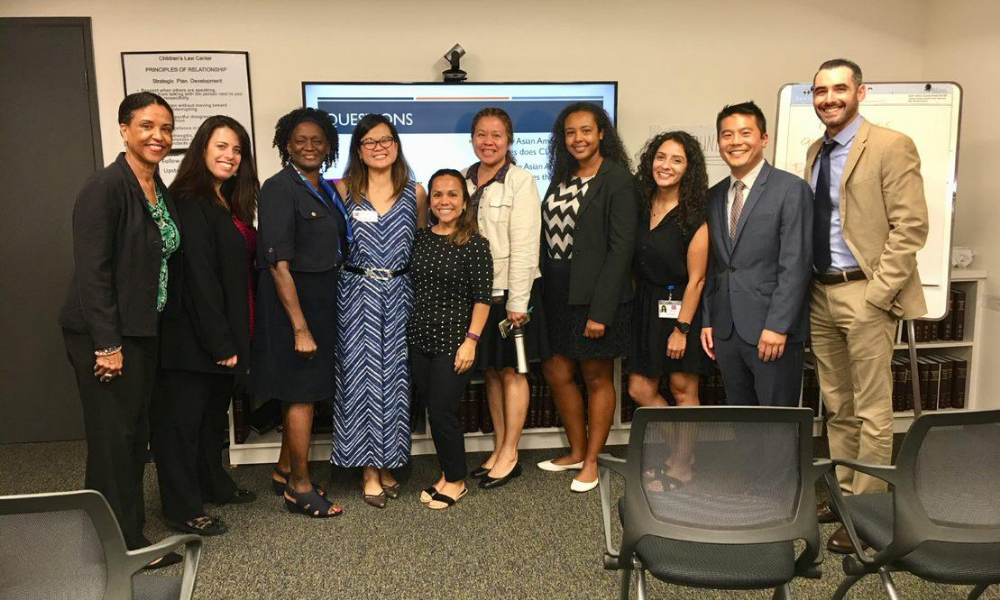Reducing Racial Disproportionality and Disparity (ReDD)
In 2017, Children’s Law Center’s launched our internal Reducing Racial Disproportionality and Disparity (ReDD) Committee. The committee strives to help our staff recognize and understand the impact of our own biases on our clients, each other and the communities we serve.
Due to the ReDD committee, CLC has made significant strides in our efforts to engage and inform our staff regarding the disparate and disproportionate outcomes and treatment that many of our African American clients in the dependency system experience.
Disproportionality in Child Welfare
- Black and native families are more likely to be reported for allegations of child abuse, more likely to be investigated and ultimately more likely to be separated than white families.
- Even with lower risk scores than non-black families, one study found that Black children were 77% more likely to be removed from their parents rather than being provided supportive services at home.
- Another study found that using “blind removals,” where decisions about whether or not to place a child in foster care were made without any knowledge of race or ethnicity, resulted in a nearly 50% reduction in the separation of black families.
- After being removed from their families and placed in foster care, Black children are less likely to reunify or find permanency, which leaves them more likely to grow up in foster care and enter adulthood without a family.

